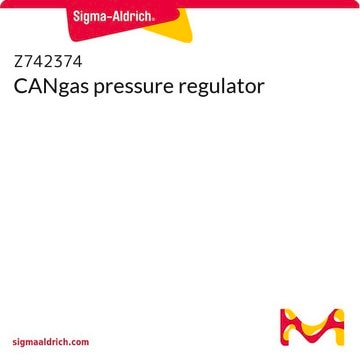All Photos(1)
About This Item
Linear Formula:
CH3CH2CH3
CAS Number:
Molecular Weight:
44.10
Beilstein:
1730718
EC Number:
MDL number:
UNSPSC Code:
12142100
PubChem Substance ID:
NACRES:
NA.22
Assay:
98%
Recommended Products
vapor density
1.5 (vs air)
Quality Level
vapor pressure
190 psi ( 37.7 °C)
8.42 atm ( 21.1 °C)
Assay
98%
autoignition temp.
842 °F
expl. lim.
9.5 %
bp
-42.1 °C (lit.)
mp
-188 °C (lit.)
density
0.564 g/mL at 20 °C (lit.)
SMILES string
CCC
InChI
1S/C3H8/c1-3-2/h3H2,1-2H3
InChI key
ATUOYWHBWRKTHZ-UHFFFAOYSA-N
Looking for similar products? Visit Product Comparison Guide
Application
Propane can be used:
- To prepare acrolein, an important raw material for the preparation of acrylic acid.
- To prepare propene through dehydrogenation reaction.
- As an alkylating agent for benzene.
Packaging
Supplied in a Sure/Pac™ cylinder and has a brass needle valve with a male 1/4" NPTF outlet thread installed. Before using the cylinder, ensure that the valve is closed, then remove the galvanized steel hex cap that seals the outlet valve.
Compatible with the following:
Compatible with the following:
Legal Information
Aldrich is a registered trademark of Sigma-Aldrich Co. LLC
Sure/Pac is a trademark of Sigma-Aldrich Co. LLC
also commonly purchased with this product
Product No.
Description
Pricing
hose barb
Product No.
Description
Pricing
recommended
Product No.
Description
Pricing
regulator
Product No.
Description
Pricing
Signal Word
Danger
Hazard Statements
Precautionary Statements
Hazard Classifications
Flam. Gas 1A - Press. Gas Liquefied gas
Storage Class Code
2A - Gases
WGK
nwg
Flash Point(F)
-155.2 °F - closed cup
Flash Point(C)
-104 °C - closed cup
Personal Protective Equipment
dust mask type N95 (US), Eyeshields, Gloves
Choose from one of the most recent versions:
Already Own This Product?
Find documentation for the products that you have recently purchased in the Document Library.
W Ashraf et al.
FEMS microbiology letters, 122(1-2), 1-6 (1994-09-15)
The bacterial metabolism of propane and the pathway(s) involved are poorly understood, as the relative importance of terminal versus subterminal oxidation of propane, via propan-1-ol and propan-2-ol, respectively, is still unclear. In the case of bacteria, the ability to oxidize
Walker R Chan et al.
Proceedings of the National Academy of Sciences of the United States of America, 110(14), 5309-5314 (2013-02-27)
The challenging problem of ultra-high-energy-density, high-efficiency, and small-scale portable power generation is addressed here using a distinctive thermophotovoltaic energy conversion mechanism and chip-based system design, which we name the microthermophotovoltaic (μTPV) generator. The approach is predicted to be capable of
C Wise et al.
Journal of chemical ecology, 38(12), 1521-1527 (2012-11-28)
Bacillus subtilis strains are known to produce a vast array of antimicrobial compounds. However, some compounds remain to be identified. Disk assays performed in vitro with Bacillus subtilis CU12 showed a significant reduction in mycelial growth of Alternaria solani, Botrytis
Yanqiao Xiang et al.
Journal of chromatography. A, 1293, 150-158 (2013-04-30)
Nine amide derivatives bearing α-stereocenters as well as different substitutions on the amide nitrogen were synthesized via an n-propanephosphonic acid cyclic anhydride (T3P)-mediated coupling, and their enantiomeric pairs were separated using supercritical fluid chromatography (SFC). Five polysaccharide-based chiral stationary phases
Michał H Jamróz
Spectrochimica acta. Part A, Molecular and biomolecular spectroscopy, 114, 220-230 (2013-06-20)
The principle of operations of the VEDA program written by the author for Potential Energy Distribution (PED) analysis of theoretical vibrational spectra is described. Nowadays, the PED analysis is indispensible tool in serious analysis of the vibrational spectra. To perform
Our team of scientists has experience in all areas of research including Life Science, Material Science, Chemical Synthesis, Chromatography, Analytical and many others.
Contact Technical Service









